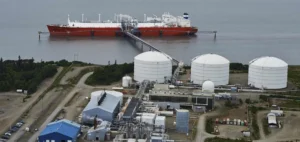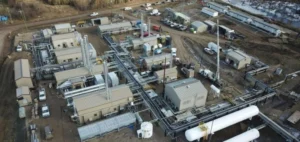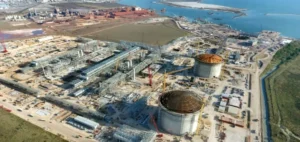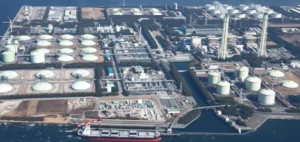Oil major Chevron has officially submitted a bid to explore natural gas in four deepwater blocks south of Crete. The consortium formed with Greek company HelleniQ Energy submitted its proposal as part of the tender launched earlier this year by the Hellenic government. This initiative follows the interest expressed by both companies in areas off the Peloponnese peninsula and the island of Crete.
A strategic positioning in the Eastern Mediterranean
Chevron confirmed it had jointly submitted its bid to the Hellenic Hydrocarbons and Energy Resources Management Company (HEREMA), stating that it now awaits the evaluation process. The US company indicated that this move marks its entry into the Greek gas exploration market, while highlighting the strategic importance of the Eastern Mediterranean within its global portfolio.
HelleniQ Energy stated that its participation strengthens its exploration and production activities in the region. Both companies aim to leverage local offshore resources to consolidate their position in an area of increasing geopolitical interest. The proposed blocks are located near other concessions already granted to a consortium led by ExxonMobil, where seismic surveys are underway.
A tense geopolitical backdrop
The consortium’s bid comes amid ongoing regional tensions, with Turkey asserting claims over contested maritime zones, relying in part on a memorandum signed with one of Libya’s rival governments. This agreement, considered invalid by several countries, challenges the entitlement of Greek islands to full exclusive economic zones, particularly around Crete.
Greek Minister for Environment and Energy Stavros Papastavrou welcomed the bid as a strong indication of Greece’s determination to strengthen its energy sovereignty. He stated that the initiative aims to lay the foundation for increased energy autonomy and to fully exploit the country’s energy potential in a region with high strategic stakes.
Towards diversified gas supply
Greece, which remains heavily reliant on gas for electricity generation, is seeking to increase its domestic resources in the context of European efforts to reduce dependency on Russian energy. Although the country has expanded its renewable energy capacities, gas remains a cornerstone of its energy mix.
Major gas discoveries off Egypt, located south of Crete, have raised expectations about the potential of Greek waters. If upcoming explorations yield positive results, Greece could reposition itself on the regional energy map, at the crossroads of Southeast Europe’s gas corridors.






















